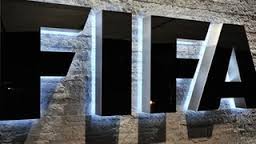By Andrew Warshaw
July 16 – FIFA’s ethics committee has called for greater powers to explain the precise reasons for punishing officials for corruption in order to speed up the reform process and prove it is entirely independent and has no political bias.
With FIFA expected to be radically cleaned up in the months ahead following the corruption scandal that has plunged the organisation into unprecedented crisis and led to Sepp Blatter deciding to stand down, investigators want to be given the chance to show more transparency and shake off any suspicion of being influenced by the FIFA administration in terms of individual cases.
The unprecedented move reveals the growing frustration of the two men who run the ethics committee, investigative chamber head Cornel Borbely and ethics judge Hans-Joachim Eckert, in terms of what they can and can’t reveal – and when.
As the rules stand now, neither of them are at liberty to name accused parties on request – or, crucially, to publicly justify their decisions until cases are closed and appeals have been exhausted, unlike in a normal criminal court.
Clearly frustrated at being hamstrung by the current regulations, the pair called for “greater opportunities for transparency” and want FIFA’s new-look executive committee to make a ruling at its meeting in September.
The move appears to have been prompted by the seven-year ban meted out 10 days ago to Harold Mayne-Nicholls, the Chilean who led the FIFA inspection team assessing the credentials of the 2018 and 2022 World Cup candidates. Ethics officials gave scant information about the reasons for the ban which Mayne-Nicholls is appealing.
“As it stands, the FIFA Code of Ethics prevents the names of accused parties within an investigation from being disclosed upon request,” Borbely said in a statement. “This is inconsistent with state criminal proceedings in Switzerland and Europe, which would provide significantly greater transparency.
“Transparency should be attributed greater importance in the future when weighing up protection of privacy against disclosure.”
Eckert said his department should be allowed to provide more information more quickly. “This should be regardless of whether or not the football official in question is appealing the decision,” he said.
The committee also wants to rectify any errors made in the media about individual cases instead of having to stay silent. “Where there has been public misinformation, the Ethics Committee must also have the right to offer rectification,” said Eckert.
Both men hope that providing more transparency will help whistleblowers come forward with reliable and valuable information.
“The two Chairmen of the Ethics Committee are of the opinion that greater transparency in investigations would help efforts to search for and clear up fraud, as it would encourage potential informants to support the proceedings,” a joint statement said.
“They also believe that transparency will have a preventative effect, as copycat culprits will also have to face exposure. For these reasons, the two Chairmen are advocating the following, in accordance with and within the framework of their capabilities:
1. In important cases, the Ethics Committee may provide information regarding ongoing proceedings.
2. Where it is in the public interest, the Ethics Committee may confirm the existence of ongoing proceedings upon request.
3. The Ethics Committee will publically justify the decisions it takes immediately, regardless of whether or not the football official in question is appealing the decision.
4. Where there has been public misinformation, the Ethics Committee may offer rectification.”
Contact the writer of this story at moc.l1751520630labto1751520630ofdlr1751520630owedi1751520630sni@w1751520630ahsra1751520630w.wer1751520630dna1751520630

